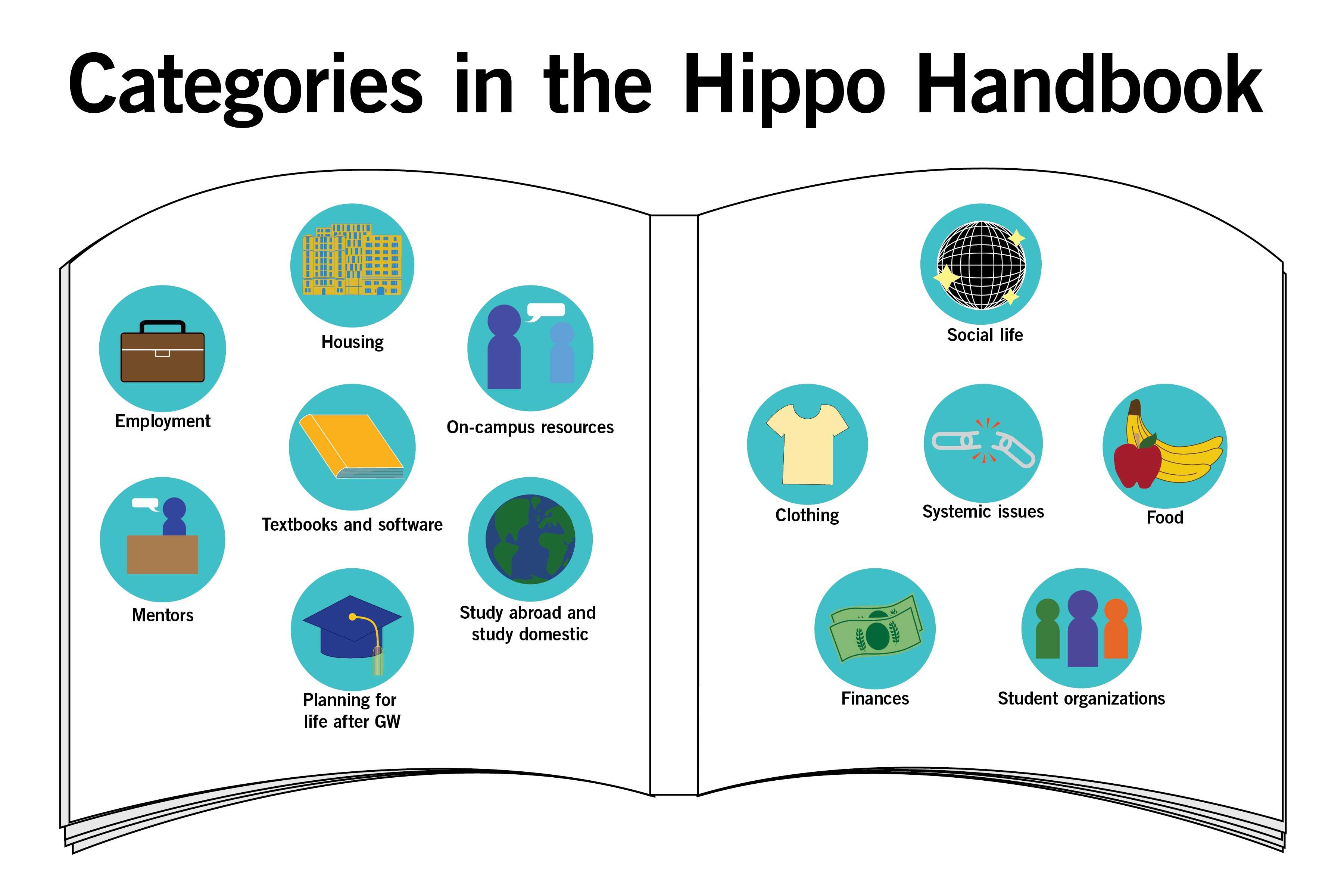Instead of calling the financial aid or housing offices, students can now seek answers to their affordability concerns from peers who have had the same questions.
Student leaders of The Store, GW’s food pantry, launched The Hippo Handbook – an interactive Google document where students can offer advice about managing costs in 13 different areas of student life, like nightlife and dining – earlier this month. The guide aggregates many of the University’s online information pages into one central location and allots a section for students to share their own personal affordability challenges.
Any student can contribute to the report, which is currently about 90 pages, by commenting on the document, but The Store’s leaders approve the submissions before they are published in the guide.
While contributors to the report are anonymous, students who wish to be credited for their input can list their name at the bottom of the handbook.
“Middle- and lower-income student priorities at GW are often overshadowed by those of our wealthier peers, and it can sometimes be difficult to find others with relatable experiences or spaces to openly discuss our collective goals,” the handbook reads. “We hope we can look to these resources to continue to support and advocate for each other.”
Student leaders said the handbook is a spinoff of the “being not-rich guide,” a document that students at the University of Michigan created in the spring offering advice to low-income students. Since then, other institutions, like the University of Texas at Austin and Harvard University, have also picked up their own versions of the report.
Saru Duckworth, the president of The Store, said the handbook is a way for the organization to shift its focus from solely operating the pantry to becoming a larger advocacy body for affordability issues.

Emily Recko | Graphics Editor
She added that the handbook can help groups like the Student Association pinpoint rife affordability issues among students and enact policy changes. In one section of the handbook, called “systemic issues,” students can express frustrations about experiences they’ve had with dining or transportation and suggest advocacy initiatives.
“Students have a direct way of highlighting those and bringing it to the attention of student leaders who can then meet with them more directly and elevate those to the administration,” Duckworth said.
Duckworth said student leaders will print a hard copy of the document at the end of every year to track changes in affordability issues over time.
“We want to see what are the affordability concerns in 2018 versus 2019, what do students care about? What’s gotten better?” Duckworth said. “And how have we moved the needle as a University, as an organization, as a student body?”
Duckworth said the handbook is currently being advertised on social media accounts and in email blasts and newsletters from the Student Association and the Multicultural Student Services Center. Eventually, the handbook will be launched on The Store’s website, she said.
Hannah Grosvenor, the vice president of The Store, said members of the organization initially released the handbook to students who use the pantry to review and add advice in July. She said leaders of The Store contacted University departments, like the housing and the study abroad offices, to fact-check the document, but “we have a lot of faith the people aren’t putting blatantly wrong information.”
After about two months of revisions and fact-checking, Grosvenor said the document opened up to all students to interact with the handbook on an ongoing basis.
“At times, college can be very hard and very confusing,” she said. “We’ve all had our own problems with that, so I think that’s something that almost everyone can resonate with.”
She said student leaders hope the handbook will function as a space for “economically challenged or marginalized” students to share their stories and provide “tips and tricks” for students to succeed at GW.
Senior Nicole McLernon, who wrote a section in the handbook about wanting free or reduced-cost Metro passes, said she contributed to the handbook so future students can have access to information that may otherwise be difficult to find in a myriad of University FAQ pages, like how to apply for a federal work study position or how to apply for an internship.
“I’m a senior and so it makes me feel good to be able to give my advice before I leave in a format that people will be able to read it after I leave,” she said.
Nora Vedder contributed reporting.





